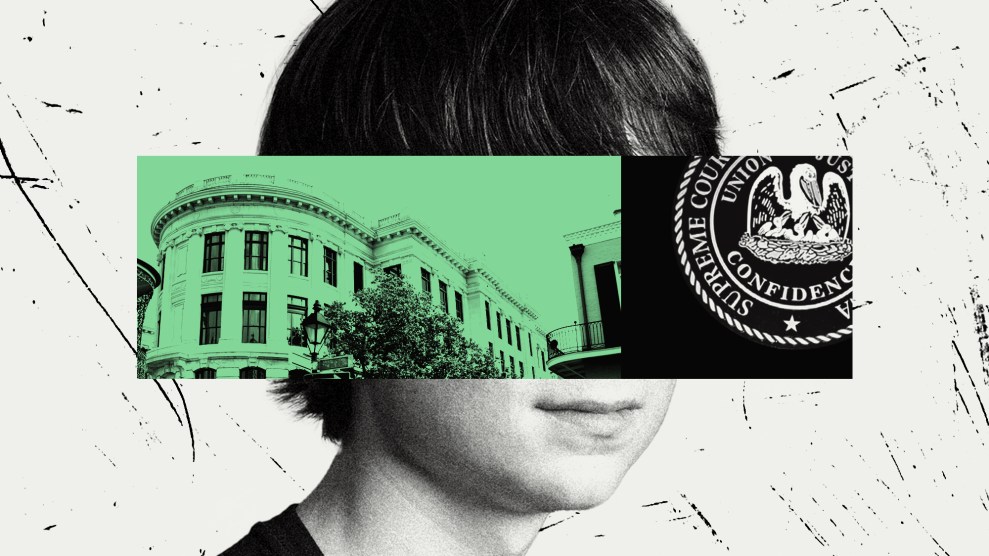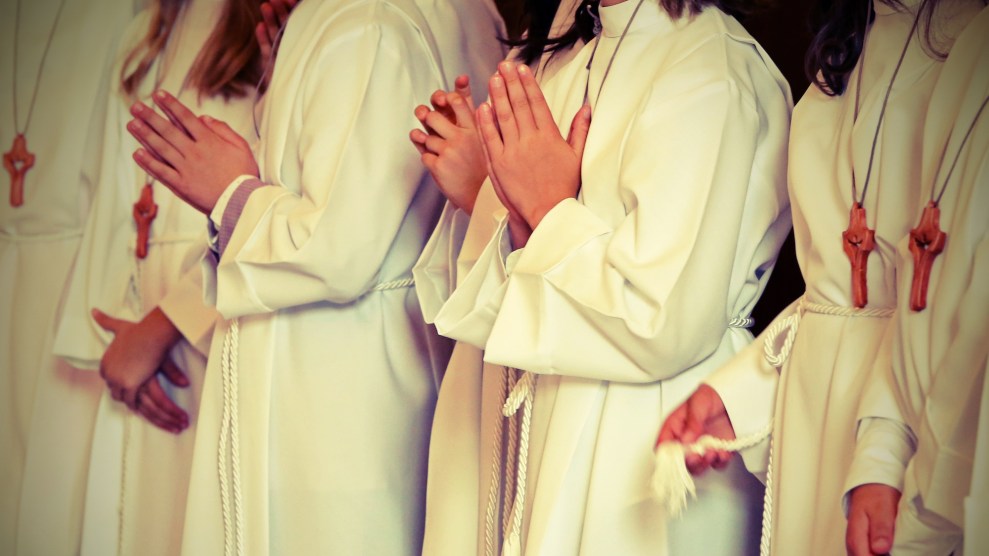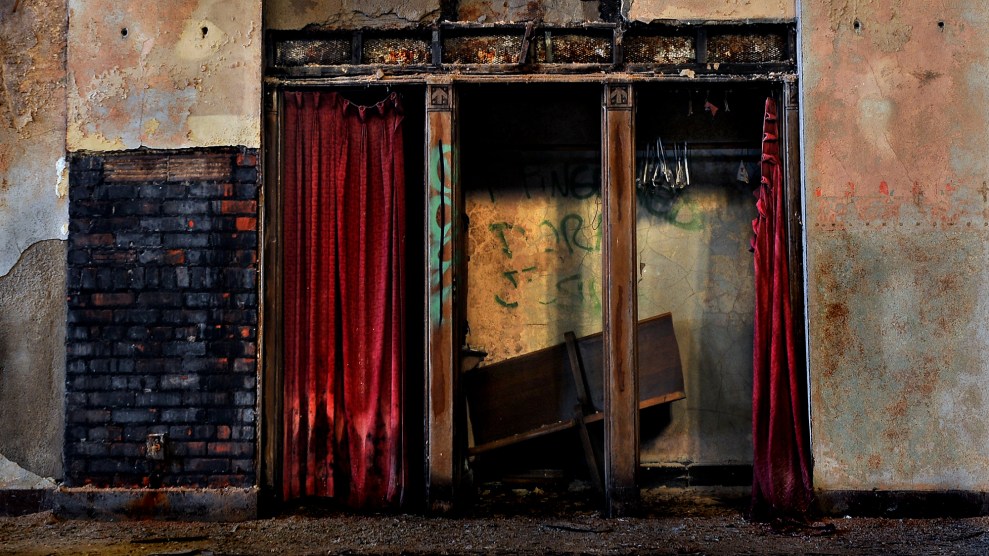
Mother Jones; Judi Bottoni/AP; Wikimedia; Unsplash
As a teen in the 1990s, Zack was routinely abused by an older man affiliated with his Louisiana church. Zack, who asked that his real name not be used to protect his privacy, said his abuser often made him feel as though he was responsible for the molestation, despite the fact that he was a minor. When the abuse came to light, his church did nothing to dispel this feeling: His attacker was asked to leave the church for a year before being allowed to return. In the years that followed, Zack saw reports on the news of child sex abuse victims successfully suing their churches and wanted to do the same—but by the time this option occurred to him, his case had already exceeded the Louisiana statute of limitations.
In 2021, Zack finally got a second chance at justice, when the Louisiana state legislature passed a three-year “look-back window” that allowed victims of child sex abuse to file civil suits over crimes that occurred many years in the past. He began preparing to file his claim before the deadline the legislature had imposed in June 2024. But then, this March, before Zack was able to file his suit, the Louisiana Supreme Court struck down the look-back window, ruling that it was unconstitutional. It was crushing news for Zack and hundreds of other Louisiana survivors, who must now wait on the results of a protracted legal battle to see whether they will be able to move forward with their claims. In a rare move, the court agreed to rehear the case earlier this month, with supplemental briefs due this week. If the ruling holds, it will mean that adult survivors like Zack will have lost one of their few options to achieve justice through the legal system.
Look-back windows can be a lifeline for victims whose claims were previously barred by statutes of limitations, and they have been essential in some of the most high-profile cases in the post-MeToo era, including E. Jean Carroll’s lawsuit against Donald Trump. According to child rights think tank Child USA, since 2018, 20 states have passed laws granting look-back windows for victims of child sexual abuse to file civil suits. The March ruling by Louisiana’s Supreme Court makes Louisiana one of only two states, along with Utah, to declare these laws unconstitutional.
In its 4-3 decision, the Louisiana Supreme Court sided with the Catholic Diocese of Lafayette, which had brought a constitutional challenge to the look-back law after being sued by 11 survivors of child sexual abuse. The court ruled that the look-back window infringed on the diocese’s right to defend itself from civil litigation using the statute of limitations.
The decision has potential implications not only for the victims in the Lafayette case, but also for hundreds of other survivors with pending abuse claims against other churches. In New Orleans, more than 500 survivors have filed claims against the Archdiocese for sexual abuse and are currently awaiting the results of a years-long bankruptcy proceeding that will determine what kind of restitution, if any, they get from the church. Now, victims face even more uncertainty around what they might receive at the end of this process. If the court’s decision to repeal the look-back window stands, each survivor will have to prove that their case meets one of the narrow exceptions to the state’s statue of limitations—for instance, if they had repressed memories of the abuse. However, these exception are rarely granted, lawyers told me.
“For the courts to hold that the legislature doesn’t even have power to revive claims was a big surprise to me,” said Zack’s lawyer, Kristi Schubert. “A lot of my clients were just completely gutted. It sent them the message that a child molester’s right to escape responsibility for child rape is more important than the right of the sex abuse survivor to get justice.”
Steve McEvoy, another of Schubert’s clients and one of the victims in the New Orleans case, said he struggled with alcohol addiction and mental health issues for decades due to being raped as a child. His mental health issues were re-triggered after the court’s decision, but this time he had a network of fellow victims to help him through. “Your body just wants to go lay down, but mentally, you have to go in a different direction,” he said. “You have so many people around you that are willing to fight.”
After the ruling, both the plaintiffs and Louisiana Attorney General Liz Murrill filed requests for the court to reconsider the case. Murrill wrote that the court’s decision “strikes at the very heart of the separation of power.” The judiciary overstepped its role, she added, risking a future where courts “will begin making policy decisions rather than leaving policymaking to the Legislature and the Executive.”
As survivors await the results of the Supreme Court’s rehearing, the Louisiana state legislature is working on a bill to extend the look-back window for another three years, to 2027. The bill has passed the Senate and waiting on the House’s approval. But the bill’s future is uncertain if the Supreme Court upholds its ruling.
As Schubert pointed out, the court’s decision could have repercussions that extend far beyond the current abuse cases making their way through the legal system. “One thing I truly wish more people understood is that the look-back window is not only about benefiting the abuse survivors themselves,” she said. “It benefits everyone, because civil lawsuits related to childhood sexual abuse claims play a critical role in forcing organizations to improve their policies and finally start taking abuse protection seriously.”














